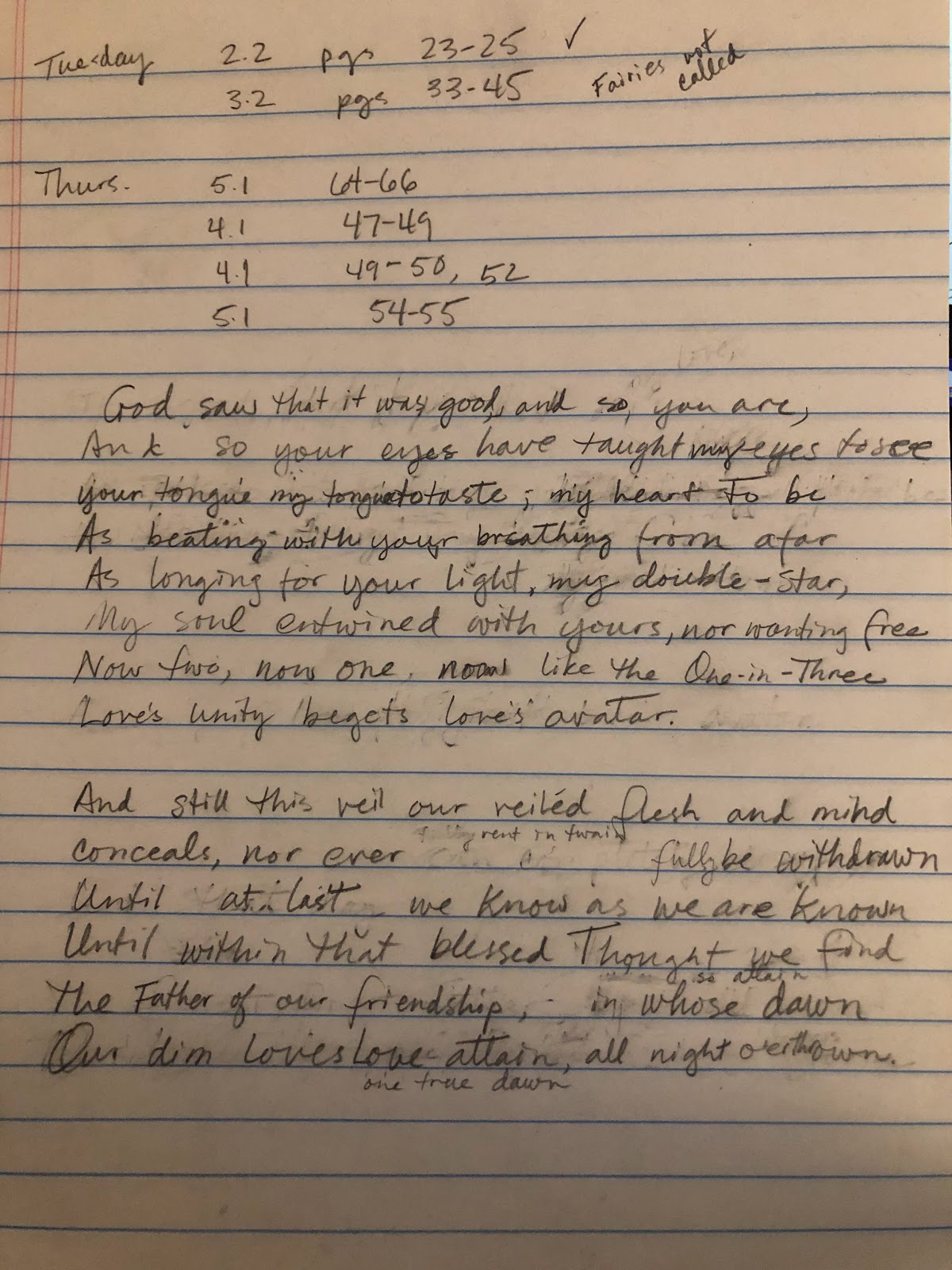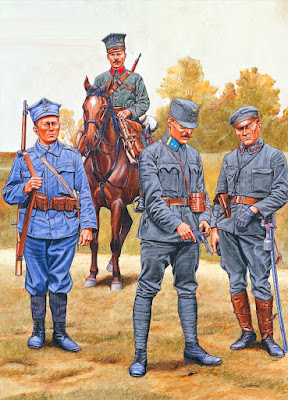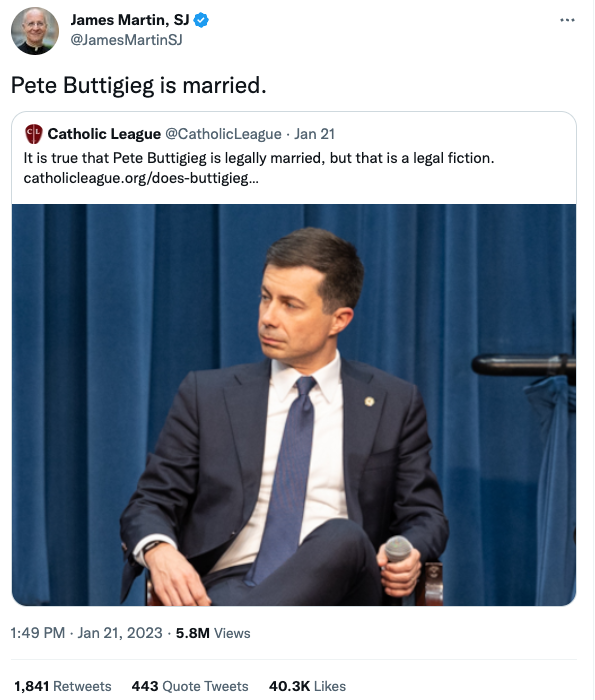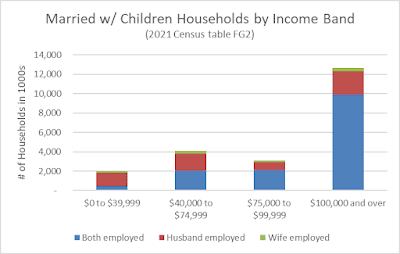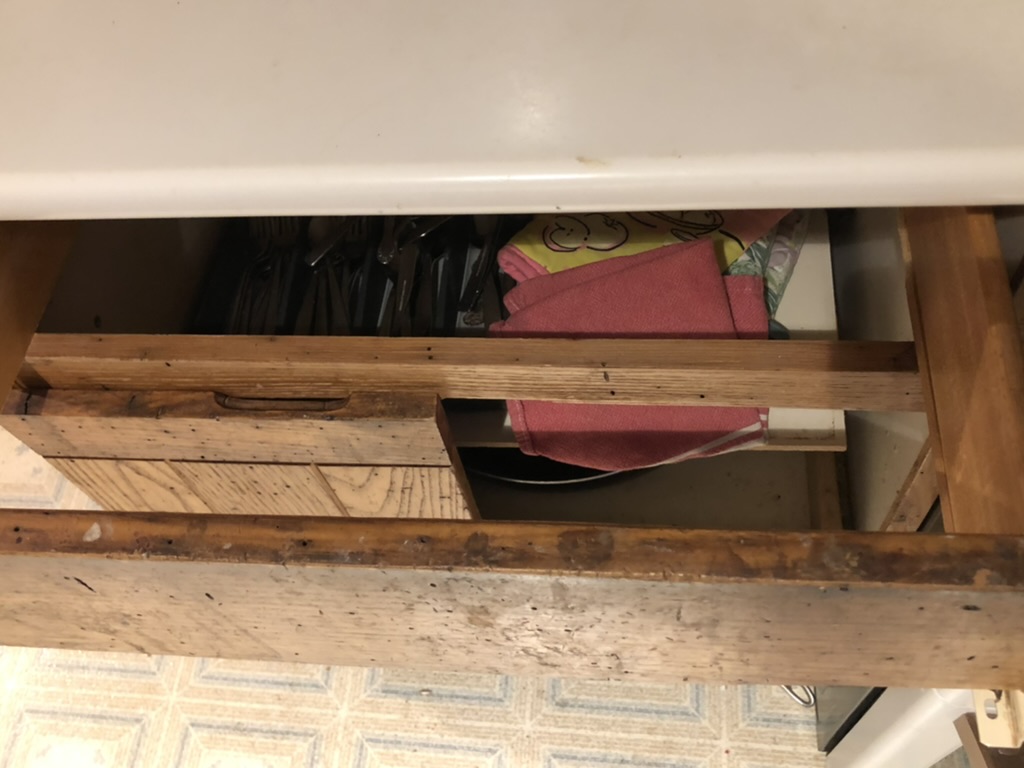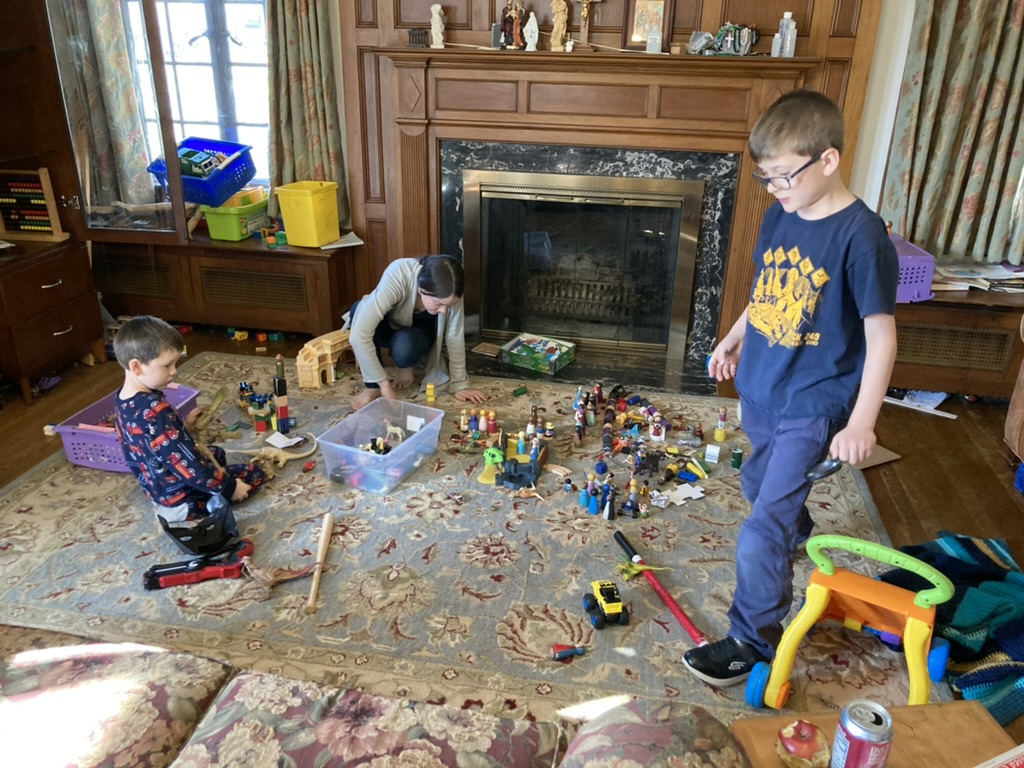Previous
Here they were again, all crying, except, of course, Elinor. Marianne’s agony billowed from her room in wave after ear-splitting wave, the occasional shriek of “Willoughby!” rising above the inarticulate howls. Margaret too was wailing, less from compassion than from the contagious anxiety of the afternoon. Poor dear child, she’d hoped to come home from a tedious afternoon at Middletons to the reward of a new brother. What she found instead was a sister dissolved in heartbreak and Willoughby distraught, distant, and deceptive. Willoughby was gone now, perhaps forever, and the Dashwood house was rocked to its foundations. Downstairs, Elinor was white-lipped with worry. Upstairs, everything was salt water.
Willoughby’s story of a sudden commission from his old benefactress Mrs. Smith had been strange, his demeanor so alien. Everything spoke of some deception, but how could this be, from our Willoughby? From his first "Hallo!", he had been so open and frank with them. What grief it was thus to discover what ought to have given them confidence: that Willoughby had no talent for lying. Not for him the easy knack of adorning falsehood with a veneer of probability, of saying just what others wanted to hear. The clumsiness of his deception embarrassed him as much as his audience.
Surely they must hear from him soon, even though he had almost taken his oath that he could not visit, could not write, could not even acknowledge the family that had so nearly been his own. To what ungenerous impulse could this behavior be attributed? His every shared glance with Marianne bespoke an ever-deepening trust. Only in refusing to announce their engagement had Willoughby ever withheld anything from the Dashwoods, but in that, he was not alone. If it was concealment, it was mutual; Marianne, who had never until now kept a secret from her mother, remained steadfastly silent on the subject.
Elinor, of course, doubted him. Even from her childhood, Elinor accepted only certainties; it comforted her to prepare for the worst. It was not a trait she had inherited from her mother. Why should not one believe the best of the people one loved? Willoughby must surely have his reasons, and they must do him credit. Of course the families of the neighborhood would malign him. What less could be expected from those who did not scruple to spare dear Colonel Brandon, when they knew his proven character? In the Dashwood house at least, Willoughby should be defended.
She had already been regaled with accounts of Colonel Brandon’s scandalous behavior from almost everyone present.
“… and then the letter was handed to him by Thompson… ,” Miss Carey narrated to Mrs. Dashwood Monday over tea.
“No, he brought it in on a salver!” interjected Miss Felicity.
“And he turned positively white. I've never seen anyone look so ill, even at breakfast!”
“He was red, Amelia! I thought he was burning up with fever!”
“And Mrs. Jennings was most importunate about the direction, but he wouldn't tell who wrote it, or what was in it.”
“And then he professed very sorry, but he must needs leave, and we should not go to Whitwell after all! What a to-do, you may be sure!”
“Willoughby thinks he wrote it himself,” murmured Marianne in Miss Carey’s private ear, “to get out of the trip.”
The Misses Carey dissolved into a fit of giggles. Elinor shot Marianne a speaking glance.
“And oh, Mrs. Dashwood,” twittered Miss Felicity, “Lady Middleton was all of a pother. She kept saying…”
“…It must have been extraordinary news to make him leave my breakfast table,” said Lady Middleton to Mrs. Dashwood on Tuesday. The young olive shoots had been left at home, in an abundance of caution lest they catch the dying remnants of Mrs. Dashwood's cold, but Lady Middleton knew what was due her husband's cousin, and made her visit as soon as she heard Mrs. Dashwood was receiving guests.
“I am sure he would never have left your table under less urgent circumstances,” said Mrs. Dashwood patiently. “Colonel Brandon is a gentleman, and would not cause your ladyship distress without good reason.”
“Colonel Brandon is a gentleman,” agreed Lady Middleton placidly. “We will go to Whitwell when he returns. I am sure he will not leave my table again.”
“Perhaps the weather will improve,” suggested Mrs. Dashwood, longing to steer the conversation anywhere else. “I know that the young ladies were quite eager to see Whitwell. It is a most elegant estate, I understand, belonging to Colonel Brandon's brother-in-law. Perhaps you know him?”
Lady Middleton was not to be drawn from her subject. “The Misses Dashwood shall go to Whitwell when Colonel Brandon returns. You will see, he will not leave my breakfast table again so suddenly.”
“…But my dear,” said Mrs. Jennings, settling in on Wednesday for a cozy gossip on the sofa, “I never knew a man such as the Colonel for keeping secrets! You already know about his natural daughter, Miss Williams. She's off at school in Bath, and so sickly, the poor dear, the Colonel is driven nearly to distraction. Speaking of sickly, his sister in Avignon (did you know he had a sister?) is ill, they say, but never can I get a word from him about her health. She is the youngest of them. I never knew the older brother, but Lady Middleton's cook told my woman that he was a bad 'un, and such company as he kept!”
It was a mercy that Mrs. Dashwood had trained her face into a rigid neutrality at the first mention of Col. Brandon, for Mrs. Jennings was not done discovering things from her servants.
“Of course she meant no harm by it,” the worthy woman assured Mrs. Dashwood, leaning close, “and all's well that ends well, but a word in your ear. Miss Marianne would do well to get a proposal out of her Mr. Willoughby before she sets foot again in Allingham. Mind you, I don't blame the lass -- who wouldn't want to look at such a grand place, and she to be the mistress one day! But it don't look right, and I shake my head at him, who ought to be more watchful of his own lady's interests. I know they were disappointed when Col. Brandon up and disappeared just like that, without so much as a word to any of us what was so pressing in London. He must needs walk out the door and leave the rest of us to pick our teeth, instead of picnicking. Willoughby was in a fine taking -- you might have thought the Colonel did it just to spite him. And once we'd set upon a nice drive, those two would be galloping away before anyone could catch up to them. But I had my suspicions, and sure enough if he didn't take her to Allingham, and Mrs. Smith not at home! She’s a woman to stand on propriety, so they say. It seems she's not above leaving the place away from him, or on such terms as he might wish it was left away, if he don't give satisfaction. I know we'll all be easier once the pretty business is all settled. Then our young scapegrace can show Miss Marianne all the linen and silverware her heart desires.”
The Dashwoods and their travails would soon be just one more titillating tale to be traded in the drawing rooms of the neighboring gentry, displacing Colonel Brandon’s absence. Mrs. Dashwood knew she ought to be downstairs right now with Elinor, rationally parsing the whole strange situation. She was not downstairs. She was holed up in her room, weeping almost as vehemently (though not nearly as melodramatically) as Marianne. It was a relief, in a way, to have this outlet for her emotions. For these past weeks, she had kept her tears rigidly in check. Now it was as if she had never wept before.
It was, in its way, the first time. A week ago – could it only be seven days? – she had watched Colonel Brandon ride away, bearing with him some vital piece of her inside. She was hollow, an emptiness that would not be filled even by Marianne and Willoughby’s increasing happiness. How hard it had been, to go about in front of the girls as if she could breathe, as if her whole being was not expanded beyond itself into one vast ache of yearning. She did not yearn only for the Colonel, although since he had kissed her hand her nerves had given her no peace. He was merely the foundation on which the whole cruel edifice of hope was constructed.
Hope, in her youth, had been a bright peaceful bauble, thrilling and hazy. How naive she had been, how innocent, to imagine it as a safe virtue! As a girl, oppressed by her mother’s ever-present plans to marry her into position and fortune, she would wrap herself in a protective web of dreams. Love mattered, of course, but love could be found anywhere. Perhaps she would marry a rakish lord with a heart of gold, perhaps reform a buccaneer and his pirate crew, perhaps entice a prosperous colonial returned to find a lass of the old country to provide him with sons. She would be seized with longing for she knew not what: something, everything. And she called this amorphous desire hope.
Her juvenile speculations, both theological and romantic, floated untethered to the weight of reality. There was nothing vague about hope. It was sickeningly clear and specific. She grieved the absence of this man, this kind, dignified man, unfailingly patient with Lady Middleton, with never a retort to dignify Willoughby’s murmured witticisms or Mrs. Jennings’s speculations. She memorized the shape of his fingertips as he turned Marianne’s piano music at Barton Park. She sighed over his flannel waistcoat and the not-quite-stout figure it warmed. Hope did not promise a delightful, impossible resolution to this desire. It simply was, a longing deep in her bones and flesh. It blinded, deafened, stunned, consumed. Hope was raising her to life again, and it was killing her.
Had she truly hoped since the moment she had realized that dearest Henry was never coming back to her? There had been glimmers of sunshine now and then, when the happiness of her daughters broke through her own gloom. Her own heart had surged up when Edward Ferrars had first made Elinor blush, only to sink again under Edward’s continued silence and Elinor’s steadfast equanimity. Marianne’s joy in anything was of course infectious, but Willoughby himself had been nothing but delight from the first moment he had risen up out of the mist with Marianne in his arms. To what had she clung, this interminable week, but the hope that Marianne and Willoughby would soon announce what everyone already knew. There was no security in a private understanding. People married for love, yes, but also for stability, for connection, for alliance. A public understanding would give Marianne the right to visit her future home, safe from the energetic malice of the gossips. Now Marianne’s hope was shattered, and her heartbreak thundered through the close cottage.
Why should she not cry? Why should her heart not be broken? Surely one Dashwood should be allowed a painless course of love. Why could it have not been Marianne, who practiced so little moderation of her moods that the whole house must have its share of both her ecstasies and her disappointments?
She could not stay up here forever. Elinor’s downstairs stoicism was a goad to her self-possession. She steeled herself to meet cynicism with good cheer, doubt with reasoned defense. Colonel Brandon was falsely maligned, but Mrs. Dashwood knew his private agony. So it must be with Willoughby. She at least would continue to believe in his good faith, no matter Elinor’s arguments to the contrary, until time proved to all what she hoped to be – no, what must be – true.
Next



